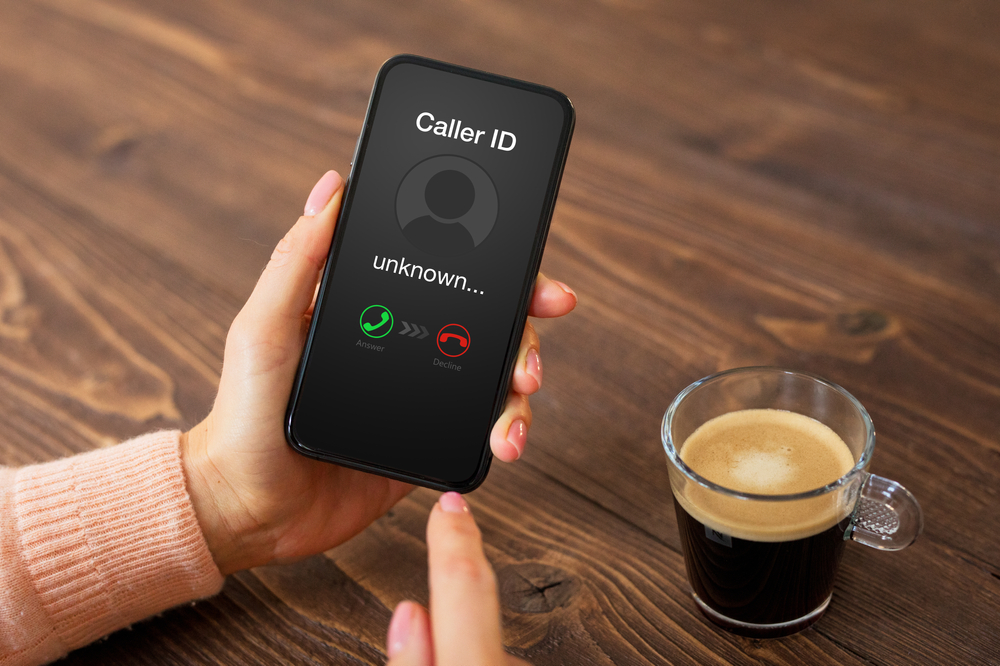Protecting your business from robocall scams can be a time-consuming and complex yet extremely necessary task. Unfortunately, with the rise of technology, scammers have become increasingly sophisticated in their methods, making it challenging to identify and prevent these fraudulent activities.
Robocall scams waste valuable time and resources and harm a company’s reputation and financial stability. Businesses must understand the ins and outs of these scams and take proactive measures to safeguard their operations. It can include implementing robust call filtering systems, educating employees on recognizing and reporting suspicious calls, and working with telecommunications providers, government entities, and legal professionals to take legal action against scammers.
For tailored advice based on your specific circumstances, contact a consumer protection robocall attorney well-versed in consumer protection for businesses to protect your business effectively from robocall scams.
Understanding Robocall Scams

Robocall scams are automated phone calls that simultaneously deliver pre-recorded messages to many recipients. These scams are annoying and can lead to financial loss or identity theft if individuals fall victim to them. To deceive their targets, scammers often impersonate legitimate businesses, government agencies, or charities. They employ various tactics, such as caller ID spoofing, where they manipulate the caller ID to make the call appear from a trusted source. They may also use fear tactics to pressure individuals into sharing their personal or financial information.
Common Robocall Scams Targeting Businesses
Robocall scams are a growing concern for businesses, with scammers continually devising new tactics to deceive and exploit. Companies must be aware of the different types of robocall scams that are prevalent today. Here are some common examples:
Fake Government Calls
One of the most prevalent types of robocall scams involves impersonating government agencies. Scammers may claim to represent entities like the IRS, Social Security Administration, or other federal, state, or local government bodies. These calls often convey a sense of urgency, suggesting issues with your business’s taxes, benefits, or legal status. The goal is to pressure you into providing sensitive information or making payments to resolve the supposed issue. Recognizing that government agencies typically communicate through official letters and verified contact methods can help you avoid falling victim to these scams.
Phishing Scams
Phishing scams involve automated calls that mimic legitimate companies or service providers. These calls often ask for sensitive information such as credit card numbers, bank account details, or login credentials under the guise of verifying your identity or resolving an urgent problem. For instance, a scammer might claim to be from your bank, stating there has been suspicious activity on your account and requesting your login information to “secure” it. Always verify such requests by contacting the company directly through official channels.
Business Loan Scams
Many businesses, especially small and medium-sized enterprises, look for loans or funding to support their operations. Scammers exploit this need by offering seemingly attractive loan terms through robocalls. They may promise quick approval and low interest rates but will ask for upfront fees or sensitive financial information. Legitimate lenders do not require substantial upfront payments, so be wary of any offer that demands them.
Fake Employee Benefits
Scammers often pose as representatives from insurance companies or other employee benefit services, targeting businesses with offers of enhanced employee benefits packages. They might request confidential employee information, claiming it is necessary to set up or improve benefits. This information can then be used for identity theft or other malicious purposes. Always verify the legitimacy of such offers by checking with the supposed benefit provider directly and cross-referencing with known contacts.
Equipment or Service Sales
In this type of scam, robocalls pose as suppliers or service providers offering special deals on office supplies, equipment, or business services. They may present these offers as limited-time deals to create a sense of urgency. Once a business expresses interest, scammers either demand payment upfront or request detailed information to “process” the order, which they can use for fraudulent activities. Verifying the offer’s authenticity by researching the company and using known contact information can help prevent falling for these scams.
Utility Impersonation
Scammers pretending to be utility companies may call businesses claiming an urgent issue with their account, such as overdue payments or immediate disconnection threats. They pressure businesses into making immediate payments, often through unconventional methods like gift cards or wire transfers. Real utility companies typically send multiple notices before disconnecting services and provide legitimate payment methods.
Tech Support Scams
These scams involve robocalls posing as technical support from well-known tech companies. They claim there is a severe issue with your business’s computer systems or software that requires immediate attention. The scammers then attempt to gain remote access to your systems, install malware, or request payment for unnecessary services. Always contact your tech support through official channels if you receive such a call.
Signs of a Robocall Scam

Businesses must be aware of signs indicating a potential robocall scam. Some red flags to watch out for include receiving automated messages that lack personalization or engaging in aggressive sales tactics. Scammers may demand immediate payment or personal information, using high-pressure tactics to push businesses into making hasty decisions. If a call seems suspicious or too good to be true, it is important to train your employees to exercise caution and verify the caller’s identity before taking any action.
The Dangers of Robocall Scams for Businesses
Falling victim to a robocall scam can have severe consequences for your business. Here are some of the potential risks and dangers:
Financial Loss
Scammers often employ sophisticated tactics to deceive businesses into making payments for fake products or services. These fraudulent transactions can lead to significant financial losses, draining your company’s resources and affecting your cash flow. The damage can extend beyond immediate losses, affecting your ability to invest in growth or meet operational expenses.
Data Breaches
Robocall scams frequently involve requests for sensitive information like bank account details, passwords, or employee data. Sharing such information during these calls can lead to data breaches, exposing your business to cyber threats. This compromises your company’s security and puts your employees and clients at risk. A data breach can lead to the theft of confidential information, resulting in financial losses, legal liabilities, and long-term damage to your business’s reputation.
Legal Consequences
Businesses that unknowingly participate in scams or illegal activities during robocalls may face severe legal repercussions. Depending on the nature of the scam, your company can be held liable for violating laws related to fraud, consumer protection, or telecommunications regulations. Legal battles can be costly, time-consuming, and damaging to your business’s standing in the industry.
Damage to Reputation
Associating with scams, whether directly or indirectly, can severely tarnish your business’s reputation. Customers, partners, and stakeholders may lose trust in your brand, leading to a decline in customer loyalty and partnerships. Rebuilding a damaged reputation is challenging and lengthy, often requiring significant time, effort, and resources to restore your audience’s confidence.
Operational Disruption
Robocall scams can also disrupt your business operations. For example, scams that involve phishing for employee credentials or business account information can halt your operations, leaving you vulnerable to further attacks. The distraction and stress caused by dealing with the aftermath of a scam can also divert your focus from core business activities, affecting productivity and growth.
Increased Scrutiny from Authorities
Once a business is identified as a victim of a robocall scam, it may attract increased scrutiny from regulatory bodies and law enforcement. This heightened attention can lead to audits, investigations, and compliance checks, further straining your resources and potentially uncovering additional vulnerabilities or compliance issues.
Reporting Robocall Scams to Authorities

Reporting to the appropriate authorities is crucial if your business receives robocall scams. The Federal Trade Commission (FTC) and the Federal Communications Commission(FCC) are the primary agencies responsible for handling robocall complaints. By sharing information about the scams you have encountered, you can help authorities identify patterns, investigate fraudulent activities, and protect other businesses from falling victim to similar scams. Reporting these scams can play a vital role in reducing their prevalence. In fact, unwanted calls of all types are the FCC’s top consumer complaint and, therefore, their top consumer protection priority.
You can help in the fight against robocall scams by reporting them to the following:
- Federal Trade Commission (FTC): You can file a complaint with the FTC at reportfraud.ftc.gov or by calling 1-888-382-1222.
- Federal Communications Commission (FCC): Report unwanted calls to the FCC at consumercomplaints.fcc.gov or by calling 1-888-225-5322.
- Better Business Bureau (BBB): Inform the BBB about the scam to raise awareness and help other businesses avoid falling victim to the same scam.
Preventive Measures for Robocall Scams:
- Implement Strong Call Filtering Systems
- Educate Employees on Recognizing and Reporting Suspicious Calls
- Develop Robust Internal Policies and Procedures
- Consult with Telecommunications Providers
- Seek Legal Advice from Consumer Protection Attorneys
Implement Strong Call Filtering Systems
One of the first steps businesses can take to protect themselves from robocall scams is implementing strong call filtering systems. These systems use advanced algorithms and machine learning to identify and block suspicious calls. By integrating call filtering technology into their phone systems, businesses can effectively reduce the number of robocalls reaching their employees. Several call-filtering software options are available in the market, so companies should be sure to choose a reputable and reliable solution that suits their specific needs.
Educate Employees on Recognizing and Reporting Suspicious Calls
Another vital aspect of protecting your business from robocall scams is educating your employees on recognizing and handling suspicious calls. Provide training sessions or workshops that cover common techniques used by scammers, such as impersonation, caller ID spoofing, and fear tactics. Teach employees to be cautious when receiving unexpected calls and verify the caller’s identity before sharing sensitive information. Encourage employees to report suspicious calls to the IT or security department so that appropriate action can be taken.
Develop Robust Internal Policies and Procedures
Creating robust internal policies and procedures can significantly contribute to protecting your business from robocall scams. These policies should outline employees’ guidelines regarding handling incoming calls, especially from unknown or suspicious numbers. Consider implementing a verification process for certain sensitive transactions or requests made over the phone. By establishing clear protocols, businesses can ensure consistency in dealing with potential robocall scam attempts and help employees make informed decisions.
Consult with Telecommunications Providers
Working closely with telecommunications providers can provide businesses additional resources and support in combating robocall scams. Contact your service provider and inquire about any available features or services designed to block or minimize unwanted robocalls. Many providers offer call-blocking tools that can be activated for your business phone lines. Collaborating with your telecommunications provider can enhance your overall protection against robocall scams.
Seek Legal Advice from Consumer Protection Attorneys
An essential step in protecting your business from robocall scams is to seek legal advice from consumer protection attorneys. These attorneys are well-versed in fraud and telecommunications law and can provide specific guidance tailored to your business’s needs. They have in-depth knowledge of local regulations and can assist in taking legal action against scammers or fighting against illegal robocall practices. Contacting a consumer protection lawyer will ensure you have the legal support to deal with these robocall scams effectively.
If a robocall scam has targeted your business and you have suffered financial loss or other damages, you should consult a legal professional. A lawyer experienced in consumer protection laws and robocall scams can guide you through the process of seeking compensation and holding the scammers accountable.
Contact a Consumer Protection Attorney Today

Robocall scams pose a significant threat to businesses, but by implementing preventive measures and seeking legal guidance, you can protect your business from falling victim to these fraudulent activities. These scams can result in financial losses, as scammers may trick employees into sharing sensitive company information or making unauthorized transactions. Moreover, if scammers use robocalls to impersonate a business, it can damage the company’s reputation and erode customer trust. Businesses may also face legal consequences if they inadvertently violate telemarketing laws related to robocalls. Companies need to be proactive in protecting themselves from robocall scams.
Remember to implement robust call filtering systems, educate employees on recognizing and reporting suspicious calls, develop robust internal policies and procedures, and consult with telecommunications providers for additional support. Lastly, contact a consumer protection lawyer familiar with fraud and telecommunications law to ensure you have legal protection and guidance to safeguard your business. Don’t let robocall scams hamper your operations and reputation—take proactive steps to protect your business today.
If you need legal advice or assistance in protecting your business from robocall scams, contact an attorney who can help with fraud and telecommunications law. They can provide tailored guidance and legal support to protect your business. Consult a consumer protection lawyer today to take the necessary steps against robocall scams.